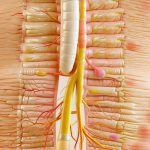The prostate gland, often discussed in relation to men’s health, is intrinsically linked to digestive wellbeing. While many associate prostate concerns solely with urinary function, the connection between gut health, dietary fiber intake, and overall prostate health is becoming increasingly recognized. A sluggish digestive system can contribute to inflammation throughout the body, potentially impacting the prostate. Conversely, a robust digestive flow – facilitated by adequate fiber consumption – supports detoxification, reduces systemic inflammation, and promotes optimal cellular function, all of which benefit prostate health. This isn’t about eliminating specific foods or following restrictive diets; it’s about embracing a dietary approach that nourishes both the gut and the prostate, fostering a harmonious internal environment.
Understanding this link is crucial because digestive issues are often subtle but can have far-reaching consequences. Constipation, bloating, and irregular bowel movements aren’t simply discomforting symptoms; they signal an overburdened digestive system struggling to eliminate waste efficiently. This leads to increased exposure to toxins, heightened inflammation, and a compromised immune response – all factors that can negatively affect prostate health over time. A diet rich in fiber, combined with adequate hydration and regular physical activity, is a powerful strategy for promoting healthy digestion and potentially mitigating these risks. It’s about preventative care, building resilience from the inside out rather than reacting to problems as they arise. Consider how meal pacing tips can help with this process.
The Power of Fiber: Types & Benefits
Fiber isn’t just one thing; it encompasses a diverse group of plant-based carbohydrates that our bodies can’t fully digest. This seemingly “undigestible” quality is precisely what makes fiber so beneficial. There are two main types: soluble and insoluble fiber, each playing a unique role in digestive health. Soluble fiber dissolves in water, forming a gel-like substance that helps regulate blood sugar levels and lower cholesterol. Good sources include oats, beans, apples, and citrus fruits. Insoluble fiber doesn’t dissolve in water but adds bulk to the stool, promoting regularity and preventing constipation. Whole grains, vegetables like broccoli, and bran are excellent sources of insoluble fiber. The ideal dietary approach incorporates both types for a comprehensive digestive benefit.
A high-fiber diet supports prostate health through several mechanisms. Firstly, it aids in eliminating toxins from the body, reducing the burden on the liver and kidneys – organs crucial for detoxification processes. Secondly, the increased bulk created by fiber promotes regular bowel movements, preventing stagnation and minimizing exposure to harmful substances. Thirdly, certain types of fiber act as prebiotics, feeding beneficial bacteria in the gut microbiome. A healthy gut microbiome is essential for immune function, inflammation control, and overall wellbeing, all of which indirectly support prostate health. Finally, a consistent intake of fiber helps maintain a healthy weight, reducing the risk of obesity-related inflammation that can exacerbate prostate issues. You might find seasonal eating plans beneficial in adjusting your diet accordingly.
The benefits extend beyond just digestive regularity. Studies suggest that diets rich in fiber may reduce the risk of chronic diseases like heart disease, type 2 diabetes, and certain types of cancer – conditions often associated with inflammation and oxidative stress, factors also relevant to prostate health. Incorporating more fiber into your diet isn’t about drastic changes; it’s about making small, sustainable adjustments that add up over time. Start by swapping refined grains for whole grains, adding a serving of fruit or vegetables to each meal, and gradually increasing your daily fiber intake. Remember to drink plenty of water to help fiber work effectively.
Fiber-Rich Food Choices for Prostate Support
Choosing the right foods is key to maximizing the benefits of dietary fiber. Leafy green vegetables – spinach, kale, collard greens – are nutritional powerhouses packed with fiber, vitamins, and antioxidants. Berries, particularly blueberries and raspberries, offer a delicious source of fiber and anti-inflammatory compounds. Legumes like beans, lentils, and chickpeas are excellent plant-based protein sources and boast high fiber content. Whole grains – quinoa, brown rice, oats – provide sustained energy and contribute to digestive regularity. And don’t underestimate the power of fruits with edible skins, such as apples and pears, which offer an extra boost of fiber.
Beyond these specific foods, consider incorporating flaxseeds and chia seeds into your diet. These tiny seeds are nutritional superstars, loaded with fiber, omega-3 fatty acids, and lignans – compounds believed to have prostate-protective properties. You can add them to smoothies, yogurt, oatmeal, or salads for a subtle yet significant health boost. Aim for variety in your fiber sources to ensure you’re getting a wide range of nutrients and maximizing the benefits. Don’t fall into the trap of relying on just one or two foods; explore different options to keep things interesting and maintain a balanced diet. A good starting point could be exploring mindful mealtimes to help with this process.
Finally, it’s important to note that increasing fiber intake too quickly can lead to bloating and gas. Gradually increase your consumption over several weeks to allow your digestive system to adapt. Listen to your body and adjust accordingly. Combining increased fiber intake with adequate hydration is crucial for optimal digestion and prevents constipation. Staying active also plays a key role in promoting healthy bowel movements and overall digestive function.
Hydration & Digestive Flow
Water is the unsung hero of digestive health, often overlooked but absolutely essential. Fiber absorbs water to create bulk and soften stool, making it easier to pass through the digestive tract. Without sufficient hydration, fiber can actually contribute to constipation, negating its intended benefits. Aim for at least eight glasses of water per day, or more if you’re physically active or live in a hot climate. Pay attention to your body’s signals and drink whenever you feel thirsty.
Beyond plain water, herbal teas and broth-based soups can also contribute to your daily fluid intake. Avoid sugary drinks like soda and juice, which offer little nutritional value and can disrupt digestive function. A simple way to ensure adequate hydration is to carry a reusable water bottle with you throughout the day and sip on it regularly. Make it a habit to drink a glass of water before, during, and after meals to aid digestion.
The relationship between hydration and digestive flow extends beyond just softening stool. Water helps maintain the integrity of the intestinal lining, preventing inflammation and promoting nutrient absorption. It also facilitates the movement of food through the digestive tract, reducing the risk of stagnation and bloating. A well-hydrated body is a happy body, and a healthy digestive system is essential for overall wellbeing – including prostate health.
Building a Prostate-Friendly Digestive Routine
Creating a sustainable lifestyle change requires more than just dietary adjustments; it’s about building a holistic routine that supports optimal digestive function. This includes incorporating regular physical activity, managing stress levels, and prioritizing sleep. Exercise helps stimulate the muscles in the digestive tract, promoting bowel movements and preventing constipation. Stress can disrupt digestion, leading to bloating, gas, and other uncomfortable symptoms. Finding healthy ways to manage stress – through yoga, meditation, or spending time in nature – is crucial for maintaining a balanced gut microbiome and overall wellbeing.
Prioritizing sleep allows your body to repair and rejuvenate, including the digestive system. Aim for seven to eight hours of quality sleep per night. Establish a regular sleep schedule and create a relaxing bedtime routine to promote restful sleep. Consider incorporating mindful eating practices into your daily life. This involves paying attention to your food while you’re eating it, savoring each bite, and avoiding distractions like television or smartphones. Mindful eating can help you recognize your body’s hunger and fullness cues, preventing overeating and promoting healthy digestion.
Ultimately, a prostate-friendly digestive routine is about creating a lifestyle that prioritizes wellbeing. It’s not about deprivation or restriction; it’s about nourishing your body with wholesome foods, staying hydrated, moving regularly, managing stress, and getting enough sleep. By adopting these habits, you can support optimal digestive function, reduce inflammation, and promote overall health – all of which contribute to a healthier prostate and a more vibrant life. Remember that consistency is key; small, sustainable changes are far more effective than drastic, short-lived efforts.





















